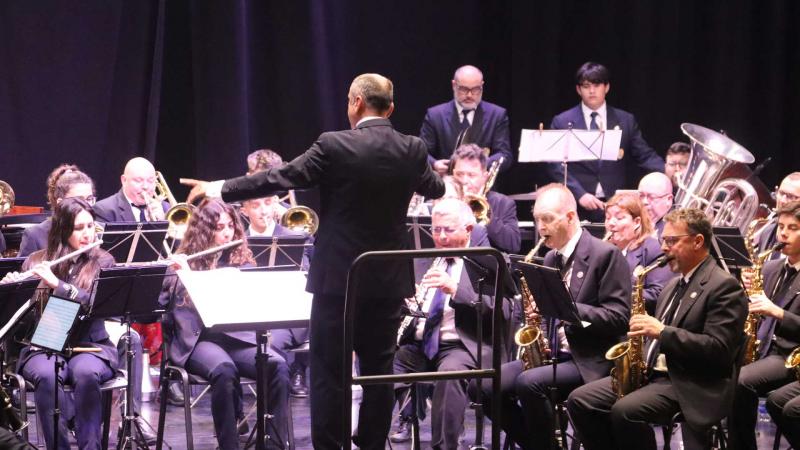Live Nation's Artist Dealings Scrutinized: DOJ's Winning Argument

Table of Contents
The DOJ's Key Argument: Stifling Competition Through Market Dominance
The core of the DOJ's case rests on the assertion that Live Nation's overwhelming market share stifles competition, harming both artists and consumers.
Live Nation's Market Share and Control
Live Nation's market dominance is staggering. Its influence extends across various facets of the music industry, creating a near-monopoly in many areas.
- Ticketmaster's Market Share: Ticketmaster, a Live Nation subsidiary, controls a vastly disproportionate share of online ticket sales, giving Live Nation immense leverage over artists and venues. Precise figures vary, but estimates suggest control of over 70% of the primary ticketing market.
- Venue Ownership and Operation: Live Nation owns and operates hundreds of venues globally, providing further control over where artists can perform. This limits artist choices and potentially inflates venue rental costs.
- Market Share Compared to Competitors: Live Nation's market share dwarfs that of its competitors, creating an uneven playing field and hindering the emergence of viable alternatives.
Anti-Competitive Practices Alleged by the DOJ
The DOJ highlighted several specific practices as evidence of Live Nation's anti-competitive behavior:
- Exclusive Contracts with Artists: The DOJ presented evidence of Live Nation's use of exclusive contracts, preventing artists from performing at competing venues or using alternative ticketing services. This limits an artist's ability to negotiate better terms.
- Tying Arrangements: The DOJ argued that Live Nation employed tying arrangements, forcing artists to use Ticketmaster's services as a condition for securing venues or promotional support. This eliminated competition in the ticketing market.
- Predatory Pricing: The DOJ investigated allegations that Live Nation engaged in predatory pricing, undercutting competitors to drive them out of business and maintain its market dominance.
The Impact on Artists: Limited Negotiation Power and Reduced Revenue
Live Nation's market dominance significantly impacts artists, limiting their negotiation power and potentially reducing their revenue.
Reduced Bargaining Power for Artists
The lack of competition leaves artists with limited options.
- Lower Artist Fees: The absence of competing promoters means artists may receive lower fees than they would in a more competitive market.
- Limited Choices for Venue and Ticketing Services: Artists are often forced to accept Live Nation's terms, limiting their choices regarding venues and ticketing platforms.
- Difficulty in Touring Without Live Nation's Infrastructure: Smaller artists, especially, face significant challenges touring without relying on Live Nation’s extensive infrastructure.
Consequences for the Broader Music Industry
The implications extend far beyond individual artists.
- Reduced Diversity in the Music Industry: Live Nation's dominance may stifle the emergence of new artists and genres, leading to a less diverse music landscape.
- Increased Barriers to Entry for New Artists and Promoters: Aspiring artists and promoters face significant challenges in breaking into a market controlled by a single powerful entity.
- Potential for Higher Ticket Prices Due to Lack of Competition: The lack of competition may lead to higher ticket prices for consumers, making concerts less accessible.
The DOJ's Winning Strategy: Evidence and Legal Precedents
The DOJ's success stemmed from a strong evidentiary base and a clear understanding of relevant legal precedents.
Strength of the DOJ's Evidence
The DOJ presented compelling evidence to support its claims:
- Internal Documents: Internal Live Nation documents revealed strategies and communications that supported the DOJ's allegations of anti-competitive practices.
- Witness Testimonies: Testimonies from artists and industry insiders corroborated the DOJ's claims of unfair practices and limited choices.
- Statistical Analysis: Statistical analysis demonstrated Live Nation's disproportionate market share and its impact on artist compensation and ticket prices.
Relevant Legal Precedents
The DOJ effectively leveraged established antitrust laws and precedents.
- Sherman Antitrust Act: The DOJ successfully argued that Live Nation violated the Sherman Antitrust Act, which prohibits monopolies and anti-competitive practices.
- Relevant Case Law: The DOJ cited numerous previous antitrust cases to support its arguments, demonstrating a pattern of similar behavior by dominant players in other industries.
Conclusion: The Future of Live Nation Artist Dealings and Implications for the Music Industry
The DOJ's victory in its antitrust case against Live Nation represents a significant development for the music industry. The court's findings underscore the negative impact of Live Nation's artist dealings on competition and fairness. The ruling's implications are far-reaching, potentially prompting changes in Live Nation's business practices and paving the way for a more equitable environment for artists. The scrutiny of Live Nation's artist contracts is likely to continue, and the impact of Live Nation's business practices will be closely monitored. The future of Live Nation's dealings with artists remains uncertain, but this case marks a crucial step towards ensuring a healthier and more competitive music industry. Stay informed about the ongoing developments regarding Live Nation artist dealings and the future of the music industry.

Featured Posts
-
 Dwr Alshbab Fy Bnae Mstqbl Mstql
May 29, 2025
Dwr Alshbab Fy Bnae Mstqbl Mstql
May 29, 2025 -
 Stranger Things Comics A Perfect Companion While Waiting For Season 5
May 29, 2025
Stranger Things Comics A Perfect Companion While Waiting For Season 5
May 29, 2025 -
 Dorsal 23 Del Athletic Un Recorrido Por Sus Portadores Mas Emblematicos
May 29, 2025
Dorsal 23 Del Athletic Un Recorrido Por Sus Portadores Mas Emblematicos
May 29, 2025 -
 Rick Derringer Guitarist For Weird Al Yankovic Dies At 77
May 29, 2025
Rick Derringer Guitarist For Weird Al Yankovic Dies At 77
May 29, 2025 -
 Stock Market Valuations A Bof A Analysis For Investors
May 29, 2025
Stock Market Valuations A Bof A Analysis For Investors
May 29, 2025
